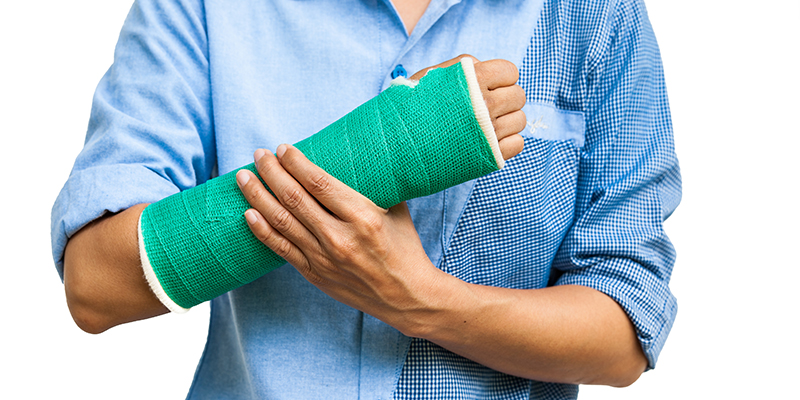
Experts at the University of Nottingham and University Hospitals of Derby and Burton have been awarded £1.2m from the National Institute of Health Research (NIHR) to improve the rehabilitation of patients following surgery for finger flexor tendon injuries.
When someone suffers a laceration to the palm of their hand and cut the tendons, this can lead to the loss of movement in their fingers. The press coined the phrase “avocado hand” after so many people suffered the injury trying to remove the Avocado stone in a dangerous manner with a knife. Flexor tendons can also be injured by broken glass, power and gardening tools. Treatment for the injury requires surgical repair and lengthy rehabilitation.
The team at the world renowned Pulvertaft Hand Centre at University Hospitals of Derby and Burton and the University of Nottingham will study the splints used following a surgical repair of this injury. Many patients struggle with their rehabilitation as the splints that need to be worn are often awkward and get discarded before rehabilitation is complete.
Emma Bamford, hand therapist at the Pulvertaft Hand Centre, said: “We are delighted that the Pulvertaft Hand Centre has been awarded this prestigious grant from NIHR. Flexor tendons attach to the muscles in our forearms and give us the ability to bend our fingers and interact with the world. Without surgery to repair the tendons the fingers would never bend, and our hands would become useless. Following surgery a made to measure splint is needed to prevent the repaired tendon from re-rupturing.
“Clearly we see many people suffering this type of hand injury, be that at work or at home. What is seemingly a small cut can cause significant damage inside the hand that requires surgery and very long and often painful rehabilitation. This study will enable us to see which splint gives people the best chance of getting back their normal hand use.”
Professor Avril Drummond, Professor of Healthcare Research and Lead for Rehabilitation Research Group at the University of Nottingham said: “We are really excited to have secured this large grant which will advance our knowledge on how best to treat patients after tendon repair surgery. At present we simply do not know which splint is best for which patient- and this study will answer this important question and underpin future care and rehabilitation in this field.”
The study will be supported by Sheffield Clinical Trials Research Unit (ScHARR) and involves collaborators from hospitals in Birmingham and Leicester. More than 400 patients in 20 hospitals will take part in the research, which will see patients monitored for a year after their surgery.
Story credits
About the National Institute for Health Research
The mission of the NIHR is to improve the health and wealth of the nation through research. It does this by:
- Funding high quality, timely research that benefits the NHS, public health and social care
- Investing in world-class expertise, facilities and a skilled delivery workforce to translate discoveries into improved treatments and services
- Partnering with patients, service users, carers and communities, improving the relevance, quality and impact of our research
- Attracting, training and supporting the best researchers to tackle complex health and social care challenges
- Collaborating with other public funders, charities and industry to help shape a cohesive and globally competitive research system
- Funding applied global health research and training to meet the needs of the poorest people in low and middle income countries.
NIHR is funded by the Department of Health and Social Care. Its work in low and middle income countries is principally funded through UK Aid from the UK government.